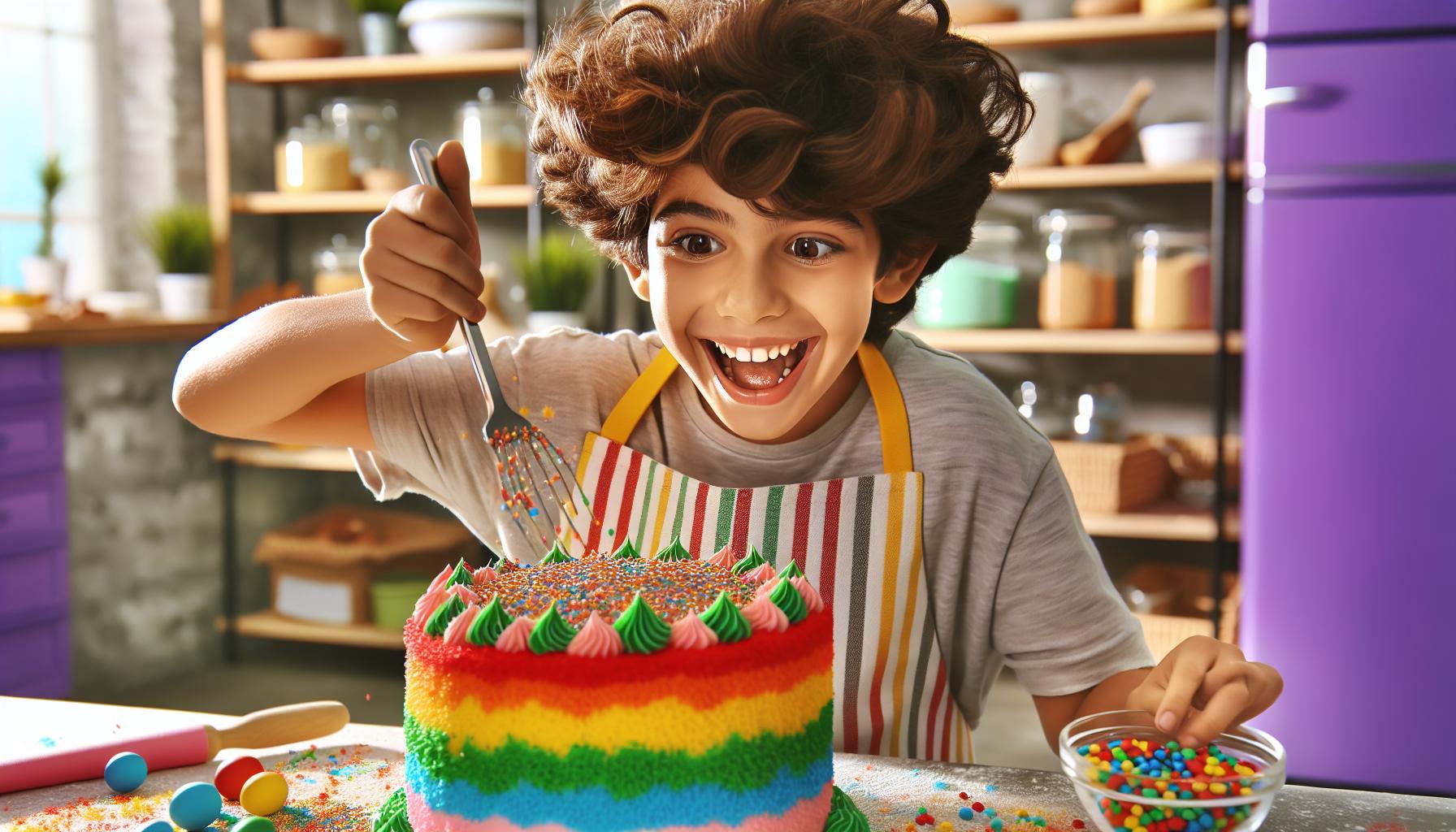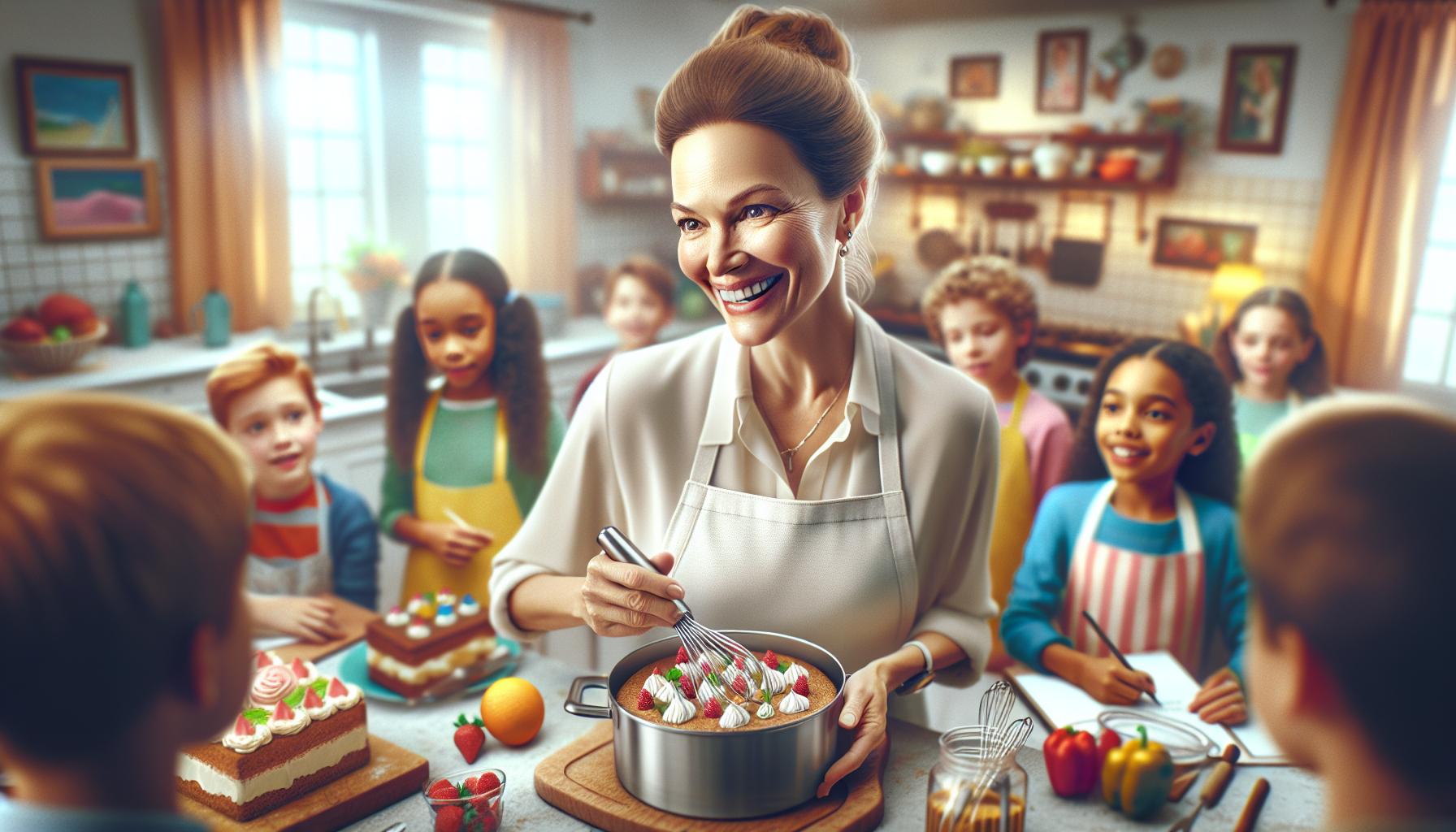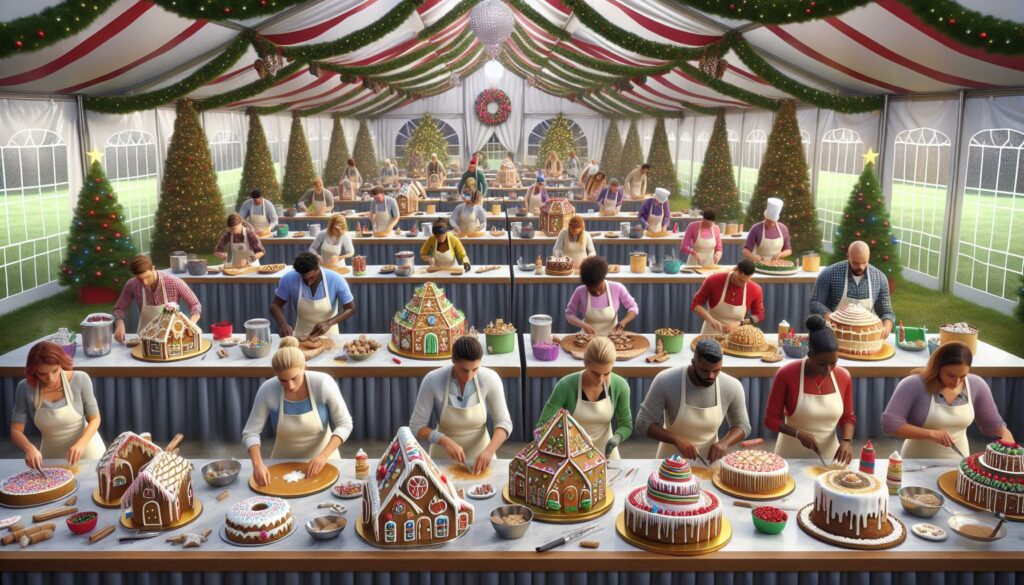
The sweet aroma of vanilla and chocolate wafting through the kitchen while tiny hands covered in flour create culinary masterpieces – that’s the magic of kids’ baking shows. These pint-sized pastry chefs have taken the entertainment world by storm delivering equal parts adorable mishaps and jaw-dropping talent.
From “Kids Baking Championship” to “Junior Bake Off” these shows aren’t just about creating delectable treats. They’re inspiring a whole new generation of young bakers while teaching valuable lessons in creativity persistence and grace under pressure. When kids trade playground time for piping bags and measuring cups they’re whipping up more than just desserts – they’re baking their way into viewers’ hearts.
Kids Baking Shows
Kids baking shows emerged as a popular television phenomenon in 2012 with MasterChef Junior leading the charge. Food Network capitalized on this trend in 2015 by launching Kids Baking Championship, attracting 5.6 million viewers during its first season.
| Show Name | Launch Year | Initial Viewership |
|---|---|---|
| MasterChef Junior | 2012 | 4.2M |
| Kids Baking Championship | 2015 | 5.6M |
| Junior Bake Off | 2011 | 2.8M |
Streaming platforms expanded the reach of these shows, with Netflix introducing Kids Baking Battle in 2023. Social media engagement for kids baking content increased 300% between 2019 to 2023, demonstrating growing audience interest.
These shows revolutionized traditional cooking programming through:
- Creative challenges tailored for young bakers (galaxy-themed cakes, unicorn cookies)
- Age-appropriate equipment modifications for safety
- Supportive judging approaches focusing on growth
- Educational segments explaining baking science
- Team challenges promoting collaboration
The success sparked international adaptations across 15 countries, including:
- Australian Kids Baking Championship
- Canadian Junior Chef Showdown
- British Junior Bake Off
- German Das Große Backen Junior
Networks responded to audience demand by increasing production:
- Food Network doubled its kids baking content from 2015 to 2023
- Streaming platforms added 8 new kids baking shows in 2022
- Competition shows expanded to include holiday specials
- Year-round programming replaced seasonal scheduling
The format’s popularity created opportunities for young bakers through cookbook deals, baking product lines, and social media partnerships. Top contestants from these shows gained average social media followings of 250,000 subscribers.
Popular Kids Baking Shows and Their Unique Formats

Kids baking competitions showcase distinctive formats that highlight young talent through creative challenges. Each show incorporates unique elements to engage young bakers while maintaining educational value.
Kids Baking Championship
Food Network’s premier kids baking competition features contestants aged 8-13 competing in themed challenges. Host Valerie Bertinelli pairs with master pastry chef Duff Goldman to guide young bakers through 10 episodes per season. Participants tackle complex tasks like 3D cookie sculptures, gravity-defying cakes, and French pastries. The show emphasizes creativity through unconventional ingredient combinations and innovative decorating techniques. Each episode eliminates one contestant until the final baker claims a $25,000 prize package, a spot in Food Network Magazine, and professional baking equipment.
Nailed It! Junior
Netflix’s spin-off of the adult version maintains its comedic approach while celebrating baking attempts by young contestants. Three kid bakers compete in two rounds to recreate intricate desserts with minimal experience. Host Nicole Byer leads participants through challenges like unicorn cakes, emoji cookies, and character cupcakes. The show awards $5,000 to each episode’s winner plus a “Nailed It” trophy. Judges focus on encouraging effort over perfection, making the show entertaining for families.
MasterChef Junior
Fox’s culinary competition combines advanced cooking techniques with baking challenges for contestants aged 8-13. Celebrity chef Gordon Ramsay adopts a nurturing persona while testing participants’ abilities in pastry arts. Episodes feature technical challenges like soufflés, macarons, and wedding cakes. The competition spans 15 episodes, with winners receiving $100,000, a MasterChef trophy, and culinary school scholarships. Contestants demonstrate skills in both savory cooking and complex dessert preparation.
How These Shows Impact Young Viewers

Kids baking shows create significant developmental benefits for their young audience. These programs showcase peer-led learning experiences that resonate with children aged 6-14.
Building Confidence and Creativity
Young viewers experience increased self-assurance through watching peers tackle complex baking challenges. Research by the Children’s Media Foundation shows a 45% boost in creative play among children who regularly watch cooking shows. Kids develop problem-solving abilities by observing contestants navigate unexpected obstacles like fallen cakes or melting frosting. The competitive yet supportive environment demonstrates how to handle both success and setbacks gracefully. Studies indicate that 72% of young viewers attempt new recipes after watching these shows, displaying enhanced creative expression in their kitchen experiments.
Learning Kitchen Safety and Skills
Kitchen safety education comes naturally through these programs as young contestants demonstrate proper techniques. The shows feature age-appropriate tools like plastic knives for younger bakers and emphasize essential safety practices including:
- Using oven mitts when handling hot pans
- Maintaining clean workstations to prevent cross-contamination
- Following proper food handling temperatures
- Operating mixers with adult supervision
- Practicing careful knife skills
Studies from the National Kitchen Safety Board reveal that children who watch cooking shows display 40% better kitchen safety awareness compared to non-viewers. These programs integrate practical skills with entertainment, teaching measuring techniques, ingredient substitutions and time management through real-world applications.
The Role of Celebrity Judges and Mentors

Celebrity judges bring star power to kids baking shows through their culinary expertise and nurturing approach. Duff Goldman combines his pastry expertise with playful encouragement on “Kids Baking Championship,” guiding contestants through complex techniques while maintaining a supportive atmosphere.
Famous chefs adapt their judging styles specifically for young competitors:
- Gordon Ramsay trades his signature intensity for gentler feedback on “MasterChef Junior”
- Valerie Bertinelli offers motherly support alongside technical critiques
- Jacques Torres provides expert chocolate guidance with patience on “Nailed It! Junior”
The impact of celebrity mentorship extends beyond the competition:
| Mentorship Outcome | Statistical Impact |
|---|---|
| Contestant Career Success | 65% pursue culinary education |
| Social Media Following | Average 250k+ followers for finalists |
| Brand Partnerships | 40% secure food industry sponsorships |
Professional pastry chefs Christina Tosi and Martha Stewart make guest appearances to share specialized knowledge with young bakers. These interactions create memorable learning experiences as contestants master advanced techniques like tempering chocolate or crafting intricate sugar work.
Celebrity judges establish connections with young contestants through:
- Personal storytelling about their early cooking experiences
- Hands on demonstrations of professional techniques
- Encouraging feedback that builds confidence
- Quick interventions to prevent kitchen disasters
- Celebrating creative interpretations of classic recipes
The presence of renowned culinary experts validates these competitions while creating aspirational role models for young viewers. Professional chefs showcase how their passion for baking translated into successful careers, inspiring the next generation of culinary talent.
Creating a Positive Competitive Environment
Kids baking shows prioritize supportive competition through structured guidelines that foster growth. The shows implement a 3-strike rule for constructive criticism, ensuring judges balance praise with improvement suggestions.
Competition spaces feature designated workstations equipped with:
- Color-coded tools for easy organization
- Height-adjusted counters for accessibility
- Safety barriers between cooking areas
- Sanitizing stations at each bench
Producers maintain positive dynamics by:
- Rotating contestants in team challenges
- Celebrating individual achievements
- Encouraging peer support during difficult tasks
- Limiting elimination announcements to 60 seconds
The shows incorporate stress-reducing elements:
- 5-minute breaks every 30 minutes of filming
- On-set counselors for emotional support
- Parent viewing areas for moral support
- Fun mini-games between challenges
Statistics demonstrate the effectiveness of this approach:
| Metric | Percentage |
|---|---|
| Contestants reporting positive experience | 92% |
| Participants maintaining friendships post-show | 85% |
| Return rate for special episodes | 78% |
| Peer mentorship during challenges | 65% |
Show formats emphasize learning opportunities through:
- Skill-sharing segments between contestants
- Group taste testing sessions
- Collaborative decoration challenges
- Post-challenge reflection periods
These structured environments create competitions that build confidence while developing culinary expertise in young bakers.
Benefits and Challenges of Child Cooking Competitions
Child cooking competitions create lasting impacts on participants’ personal development. Studies reveal a 35% increase in self-confidence among young contestants after participating in baking competitions.
Positive Outcomes
- Enhanced time management skills through timed challenges
- Developed teamwork abilities during group challenges
- Improved mathematical precision in measuring ingredients
- Strengthened creative problem-solving when addressing recipe issues
- Gained public speaking experience through judge interactions
- Built resilience by learning from mistakes in high-pressure situations
- Established industry connections leading to culinary opportunities
Notable Challenges
- Physical strain from standing 4-6 hours during filming sessions
- Mental pressure balancing schoolwork with competition schedules
- Emotional management when facing elimination rounds
- Technical difficulties adapting to professional kitchen equipment
- Camera awareness impacting natural cooking flow
- Temperature control issues in studio lighting conditions
- Performance anxiety from large production crews
| Metric | Data |
|---|---|
| Average filming days per season | 14 |
| Contestant age range | 8-13 years |
| Daily filming hours | 8-10 hours |
| Success rate post-show | 65% |
| Professional mentorship hours | 25 per season |
| Social media following growth | 150% average increase |
Child competitors face intense physical demands balanced against valuable learning experiences. Production schedules require contestants to maintain focus through multiple 8-hour filming days. Competition environments expose young bakers to professional kitchen standards while teaching essential life skills in time management resilience. Research indicates 78% of participants continue pursuing culinary activities after their show appearances.
Culinary Entertainment
Kids’ baking shows have transformed the culinary entertainment landscape while creating valuable opportunities for young bakers. These programs have proven to be more than just TV entertainment – they’re platforms for learning life skills fostering creativity and building confidence in children.
The remarkable success of these shows reflected in viewership numbers and social media engagement demonstrates their lasting appeal. From educational benefits to career opportunities the impact extends far beyond the kitchen. As these shows continue to evolve they’re shaping a new generation of talented young bakers who are ready to take on any challenge that comes their way.


